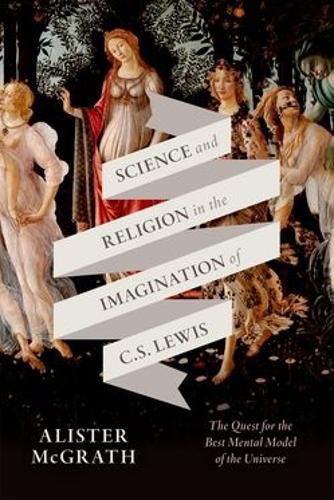Readings Newsletter
Become a Readings Member to make your shopping experience even easier.
Sign in or sign up for free!
You’re not far away from qualifying for FREE standard shipping within Australia
You’ve qualified for FREE standard shipping within Australia
The cart is loading…






Science and Religion in the Imagination of C. S. Lewis is the first comprehensive examination of C. S. Lewis's views on the relationship between science and religion, authored by an internationally acclaimed writer recognized as an authority on both Lewis and the field of science and religion. It focuses on the literary depictions of this relationship and its significance in cultural discussions regarding the boundaries of human knowledge, as well as Lewis's understanding of the roles of science and religion in humanity's pursuit of meaning and significance. This study provides a rigorous and historically informed analysis of Lewis's perspective on the interplay between science and religion, drawing both on his studies of medieval and Renaissance literature and his literary and philosophical explorations of naturalism and materialism. In particular, it highlights the importance of the constructive role of the imagination (and not merely the analytic role of reason) in constructing an authentic 'model of the universe'.This work breaks new ground by exploring Lewis's appeal to scientific criteria for evaluation in his apologetics. This can be seen as a significant anticipation of the method now referred to as 'inference to the best explanation', which was not formally articulated until after Lewis's death. While some continue to characterize Lewis as an anti-scientific Luddite entrenched in medieval fantasies, this analysis makes it clear that Lewis was well-acquainted with both the cultural perceptions of science and religion during the medieval and Renaissance eras, as well as the major philosophical and cultural debates concerning their relationship during the middle of the twentieth century. It will be an essential introduction to both this important and understudied aspect of Lewis's thought, and to its relevance for the growing field of academic studies in science and religion.
$9.00 standard shipping within Australia
FREE standard shipping within Australia for orders over $100.00
Express & International shipping calculated at checkout
Stock availability can be subject to change without notice. We recommend calling the shop or contacting our online team to check availability of low stock items. Please see our Shopping Online page for more details.
Science and Religion in the Imagination of C. S. Lewis is the first comprehensive examination of C. S. Lewis's views on the relationship between science and religion, authored by an internationally acclaimed writer recognized as an authority on both Lewis and the field of science and religion. It focuses on the literary depictions of this relationship and its significance in cultural discussions regarding the boundaries of human knowledge, as well as Lewis's understanding of the roles of science and religion in humanity's pursuit of meaning and significance. This study provides a rigorous and historically informed analysis of Lewis's perspective on the interplay between science and religion, drawing both on his studies of medieval and Renaissance literature and his literary and philosophical explorations of naturalism and materialism. In particular, it highlights the importance of the constructive role of the imagination (and not merely the analytic role of reason) in constructing an authentic 'model of the universe'.This work breaks new ground by exploring Lewis's appeal to scientific criteria for evaluation in his apologetics. This can be seen as a significant anticipation of the method now referred to as 'inference to the best explanation', which was not formally articulated until after Lewis's death. While some continue to characterize Lewis as an anti-scientific Luddite entrenched in medieval fantasies, this analysis makes it clear that Lewis was well-acquainted with both the cultural perceptions of science and religion during the medieval and Renaissance eras, as well as the major philosophical and cultural debates concerning their relationship during the middle of the twentieth century. It will be an essential introduction to both this important and understudied aspect of Lewis's thought, and to its relevance for the growing field of academic studies in science and religion.